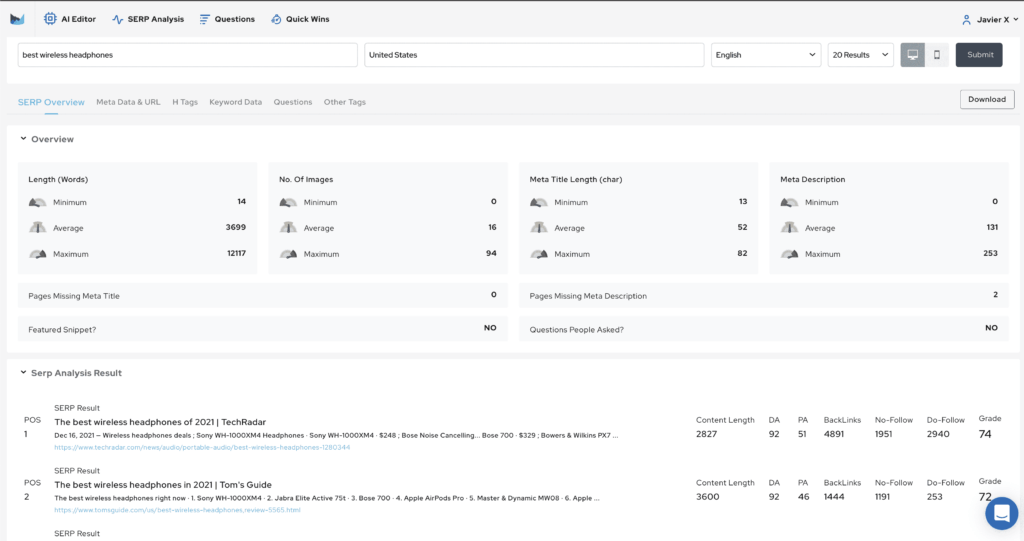Writing for the digital age is no easy feat. We live in a world where people can easily access information at any time of the day, and only have a handful of seconds to process everything they read. Blog posts are no exception; it’s important that your content is always fresh and relevant.
If you don’t keep an eye on your costs, you might run the risk of overspending on your blog—and then being left with little money for future posts.
That’s why you need to know how much it will cost you to publish a blog post, as well as what other factors you should consider before deciding whether or not to write one. Keeping these costs in mind will help you ensure you stay within budget so that you can continue to write quality content without restriction.
For a basic blog post of 1000 words, you can expect to pay anywhere between $15 and $30. If your blog post is in the education, law, or money niche and is of high quality, then be prepared to pay $40 or even more.
The cost to publish a blog post depends on several factors, including the length of the post and its topic. You can expect to pay anywhere from $5 to $500 or more for a blog post.

The average price falls between $50 and $200. When you’re considering how much it will cost you to publish a blog post, keep in mind what type of niche you’re writing about.
If your niche is competitive, then you might have to pay more for your blog posts than if it’s not competitive. If your blog posts cover topics like software, fashion, or photography, then you might have a smaller budget for each blog post than if they are about something that doesn’t require as much effort (like social media).
But don’t worry! It doesn’t matter what type of blog it is; there are still ways for you to keep within budget without compromising your quality. You just need a little creativity and some thoughtfulness so that you can come up with an effective strategy for keeping your costs low while maintaining quality content.
Price is only one of many factors you should consider before deciding whether or not to write a blog post. Other factors you should consider include the level of difficulty and time involved, as well as your audience’s interests.

If you know that your content will appeal to a younger demographic, for example, then it might be worth investing in a blog post that is easier and faster to produce. There are also marketing benefits to consider.
For example, if your blog post coincides with the start of a special event (like Black Friday), marketing experts suggest publishing an article on the subject in advance so that people can share your content with their community and increase visibility before the big day arrives.
Keeping track of your blogging costs can be a daunting task, but with a little organization and some common sense, it can be a lot easier than you think!
Here are some tips to help you out:
1. Create a budget – Before you start spending any money on blogging tools or content, make a budget and stick to it. This will help you stay focused and avoid overspending on anything unnecessary.
2. Organize your expenses – Once you have created your budget, it’s time to start tracking your expenses. Choose a system that works for you and start recording every penny that goes into your blog budget. This way, you will have an accurate picture of how much money you are spending each month and where it is going.
3. Set goals – Once you have a good understanding of where your money is going, it’s time to set goals for the year. Maybe your goal is to make more money than ever before? Or maybe you just want to increase the number of visitors to your blog? Having goals will help keep you on track and motivated, and ultimately result in better blog content and growth.
4. Take advantage of free resources – There are plenty of free resources available online that can help you save money on your blog expenses. Check out blogs like Money Saving Mommy or The Life Changing Magic of Tidying Up for inspiration.
Another reason why it’s important to know how much it will cost you to write a blog post is because there are fees to pay for domain hosting, WordPress plugin and other services that charge by the number of readers or clicks on your posts.
Hopefully, these tips will help you keep track of your blogging costs and make sure that every penny goes towards improving your website experience!
The first thing to keep in mind is that the costs of publishing blog posts vary depending on the length and style of your blog post.

But pricing blog posts isn’t as simple as multiplying a certain number by the word count. It’s important to consider how your blog post will be published and how it will be shared, because this will influence your cost tremendously.
For example, if you write a long-form blog post with lots of pictures, you might decide to charge more than if you were writing a shorter post with less text.
Or, if you publish your posts using clickbait tactics (e.g., quoting an excerpt from a popular book or adding a provocative title) it might cost you more to do so.
If you decide that these tactics are worth the cost, then it’s worth it for you, but remember that these tactics can have adverse effects on your audience and could backfire on your business in other ways.
There are a few different metrics that you should keep in mind when determining how much to charge for your blog posts. These metrics include:
1. The length of the post – Generally speaking, shorter posts tend to be charged less than longer posts.
2. The topic of the post – Posts that are about specific topics or industries tend to be more expensive than general-interest posts.
3. The quality of the post – Higher-quality posts tend to be more expensive than lower-quality posts.
4. The marketability of the post – Posts that are likely to generate more traffic and engagement (like those about hot topics or industry-specific content) are typically more expensive than other posts.
5. The author’s reputation and expertise – Posts from well-known and respected authors are typically more expensive than those from less well-known authors.
Keep in mind that there are many factors involved when deciding how much to charge for your content; the most important factor is whether or not your readers value what they’re reading enough to pay for it.
Quality content is the foundation for your blog. But you need to know how much it will cost you to publish a blog post, as well as what other factors you should consider before deciding whether or not to write one.

Writing for the digital age is no easy feat. We live in a world where people can easily access information at any time of the day, and only have a handful of seconds to process everything they read.
Blog posts are no exception; it’s important that your content is always fresh and relevant. If you don’t keep an eye on your costs, you might run the risk of overspending on your blog—and then being left with little money for future posts.
There are plenty of things that can affect the cost of publishing a blog post, including:
- The length of the post
- The type of content it is (e.g., a blog post about how to do X, versus a blog post about how to be Y)
- Whether or not you include images or videos
- What kind of formatting you use (e.g., standard fonts versus custom fonts)
- Whether you use a blog platform like WordPress or a self-hosted blog
Each of these factors will affect how much it costs to publish a post, as well as how long it will take to process and publish.
Keeping these costs in mind will help you ensure you stay within budget so that you can continue to write quality content without restriction.
Always asking for sample from the writer
Keep in mind that the more content you produce, the higher your blog’s overhead costs can become. If this is starting to put a financial strain on you, it might be time to reassess how much content to write and whether monetizing your blog is worth it.
Blogging is a powerful tool for creating content that can promote your brand. You can reach a new audience and promote your business through blogging.
However, you need to consider the cost of creating and publishing blog posts before deciding whether to pursue it.





